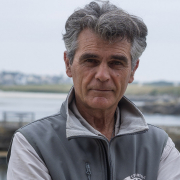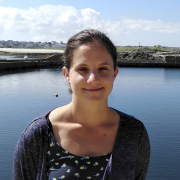Copyright : Laboratoire LEMAR- 2018
Guillaume MITTA (Univ. Perpignan)
National
ANR
Start Date
05/04/2025
End Date
05/04/2025
Diseases of complex aetiology affecting non-model species like pollinators, corals and bivalve molluscs remain difficult to decipher in natura as they are influenced by a high number of interwoven environmental and host factors. Recently, members of the consortium proposing the DECICOMP project have achieved a major breakthrough in the understanding of the major disease affecting Pacific Oysters (Pacific Oyster Mortality Syndrome, POMS), the main oyster species exploited worldwide. POMS is caused by a polymicrobial infection. Nevertheless, a series of additional factors (temperature, age, diet) are known to influence POMS. The objective of the DECICOMP project is to study how those additional parameters can influence the disease to i) decipher the whole complexity of POMS and ii) propose a modeling of epidemiological risks in oyster farms. This will help designing operational management strategies to mitigate POMS devasting effects on oyster farming.
Laboratory Members
Contributors
- Gueguen, J. de Lorgeril, J. Vidal-Dupiol, D. Destoumieux, C. Grunau, C. Chaparro, E. Toulza, du laboratoire IHPE (Interactions-Hôtes-Pathogènes-Environnements) des universités de Montpellier ou de Perpignan.
- Sofonea, laboratoire Migevec (Maladies infectieuses et vecteurs : écologie, génétique, évolution et contrôle), Université de Montpellier.
- Le Roux, Y. Labreuche, S. Chevinesse du LBIMM (Laboratoire Biologie Intégrative des Modèles Marins), Station Biologique de Roscoff.
- Morga, L. Degremont, J.-B. Lamy, C. Garcia, laboratoire SG2M (Santé, génétique des Mollusques Marins)-Ifremer La Tremblade.
















